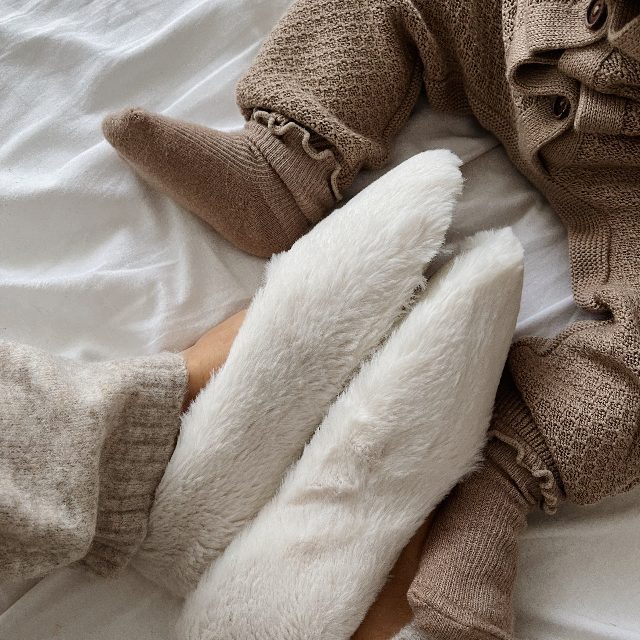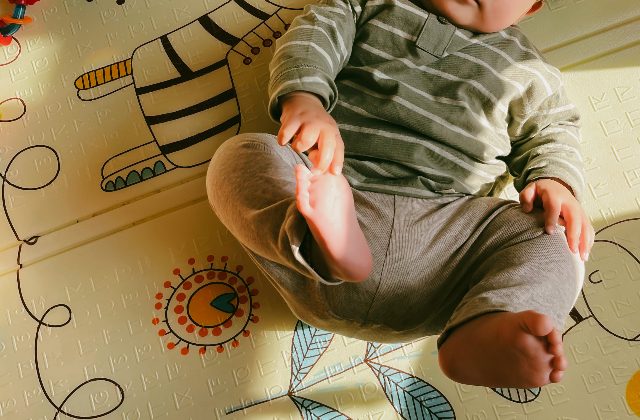
Let’s have a conversation about something super important: your baby’s bathroom habits. Yep, we’re diving into the world of pee! So, picture this: Baby not passing urine for 12 hours. Sounds concerning, right?
In this article, we’re going to break down five possible reasons why your baby might be holding it in for so long. But don’t worry, we’ll keep it light and fun, like a chat with a friend. Plus, we’ll chat about when it’s time to call in the experts. Because being clued in about these things gives you the power to be your baby’s superhero when they need it most! Let’s get started!
Baby Not Passing Urine For 12 Hours, Is It Normal?

In most cases, a baby should urinate several times a day, but the frequency can vary depending on factors such as age, hydration, and overall health. For babies under six months old, it is common for them to have six or more wet diapers per day. This regularity indicates their healthy functioning and proper hydration.
However, if you notice that your baby hasn’t passed urine for 12 hours or longer, it’s crucial to pay attention to their overall well-being and seek guidance from a healthcare professional. This situation could potentially signal an issue that requires attention and investigation. Don’t hesitate to consult a medical expert who can provide expert advice and ensure the well-being of your child.
5 Potential Causes Of Baby Not Passing Urine For 12 Hours
Baby not passing urine for 12 hours can stem from various causes, and recognizing these factors is crucial for ensuring their well-being. Let’s explore some of the common reasons and associated symptoms:
1. Dehydration:
Dehydration ranks among the most frequent causes of decreased urine output in babies. It can occur due to inadequate fluid intake, excessive sweating, fever, diarrhea, or vomiting.
Signs of dehydration, such as a dry mouth, a sunken fontanelle (soft spot on the baby’s head), irritability, lethargy, and a lack of tears when crying, should never be ignored. If your baby hasn’t urinated for 12 hours and shows signs of dehydration, seeking immediate medical attention is vital.
2. Urinary Tract Infection (UTI):
UTIs happen when bacteria enter the urinary system, leading to inflammation and infection.
Babies with UTIs may display discomfort while urinating, fever, irritability, foul-smelling urine, or even blood in their urine.
If your baby hasn’t urinated for 12 hours and exhibits any of these symptoms, consulting a healthcare professional for evaluation and appropriate treatment is recommended.
3. Kidney or Bladder Issues:
Certain kidney or bladder conditions can impact a baby’s ability to urinate normally.
Conditions like posterior urethral valves or vesicoureteral reflux, which may be present from birth or develop later, can interfere with the normal flow of urine.
If you suspect an underlying kidney or bladder issue and your baby has not urinated for an extended period, consulting a pediatrician for further evaluation is crucial.
4. Medications or Medical Procedures:
Certain medications, such as diuretics, can increase urine output, while others may have the opposite effect.
If your baby has recently started a new medication or undergone a medical procedure that could impact urine production, discussing these changes with your healthcare provider is essential. They can guide what to expect and whether any concerns require further action.
5. Blocked Urinary Tract:
Though rare, a blockage in the urinary tract can obstruct the flow of urine. This blockage may result from anatomical abnormalities, kidney stones, or urethral strictures.
If your baby hasn’t passed urine for 12 hours, appears uncomfortable, experiences swelling in the lower abdomen, or has a distended bladder, seeking immediate medical attention is critical. A blocked urinary tract can lead to severe complications if left untreated.
Possible Treatment Options When Baby Has Not Passed Urine For 12 Hours
Addressing reduced urine output in babies requires careful attention and appropriate steps. Here are essential measures to consider:
Hydration Hustle
Start by keeping your baby well hydrated. Offer frequent breastfeeding or bottle-feeding sessions to keep those fluids flowing. If breastfeeding exclusively, double-check with a lactation pro or pediatrician to ensure proper latch and enough milk intake.
Diaper Detective Work
Keep a watchful eye on diaper output—note how often and how much urine your baby passes. This intel is gold for your healthcare provider to gauge the situation’s seriousness.
Fluid Friendly
Besides milk, older infants diving into solid foods can sip on clean water. But hold off on offering water to newborns unless your healthcare whiz gives the green light.
Feeding Fine-Tuning
Wonky latching or feeding hiccups can mess with urine output. Get expert advice from lactation gurus or pediatric pros to troubleshoot any feeding fumbles.
Dehydration Detectives
Keep tabs on signs of dehydration, like parched mouth, sunken soft spots, excessive sleepiness, or lack of tears when crying. Spot these? Zip over to your doc’s office ASAP.
Unblock the Pipes
In rare cases, urinary tract blockages can clog up the flow. Let a healthcare pro give your baby the once-over for signs like belly swelling or tenderness.
Med-Check
If things aren’t improving or get worse, your baby might need medical intervention. Tests like blood work or imaging could be on the agenda to pinpoint the issue and plan treatment.
Prescription Plan
Depending on the diagnosis, meds might come into play. Stick to the doc’s orders on dosage and duration like glue.
Tube Talk
Sometimes, a pro might need to slip a thin tube through your baby’s urethra to empty the bladder. Leave this job to the trained hands of medical wizards.
Hospital Hangout
In serious cases or if the root cause isn’t clear-cut, hospital time might be on the cards. There, your little one can get top-notch monitoring, IV fluids, and specialized care until things are back on track
How To Check If Baby Is Dehydrated

Baby not passing urine for 12 hours and monitoring your baby’s hydration is crucial for their well-being. Here are the five most important points to consider:
- Monitor Urine Output: Keep track of your baby’s wet diapers as a reliable indicator of hydration. A well-hydrated baby typically has 6 to 8 wet diapers per day. A decrease in wet diapers may signal dehydration.
- Assess Urine Color: The color of your baby’s urine can offer valuable insights. Clear or pale-yellow urine indicates sufficient hydration, while darker, concentrated urine may suggest dehydration.
- Check for Dry Mouth and Lips: Dehydration often leads to dryness in the mouth and lips. If your baby’s mouth appears dry and sticky, or their lips are cracked and parched, it could be a sign of inadequate fluid intake.
- Observe Tear Production: Tears are a natural way to keep the eyes lubricated. If your baby is not producing tears while crying or has reduced tear production, it may be an indication of dehydration.
- Pay Attention to Sunken Fontanelles: Sunken fontanelles, the soft areas on your baby’s head, can be a sign of dehydration, especially if accompanied by other symptoms such as fussiness and lethargy.
What Is Considered Normal When It Comes To Baby’s Urine?
As your little one grows, so do their urinary habits! Here’s what to keep an eye (or nose) out for:
Frequency Fluctuations: Newborns are all about the pee party, with up to 20 wet diapers a day in their first week! But don’t worry, as they age, this number dips to a cool 4 to 6 times daily by around 6 months.
Volume Variations: The amount of pee your baby produces depends on age and fluid intake. Initially small, it grows as they gulp down more breast milk or formula. Expect 6 to 8 wet diapers a day, averaging 15 to 60 milliliters each, by one week old.
Color Commentary: Healthy urine is pale yellow, akin to straw, thanks to waste breakdown. But watch out for shades like red, orange, or brown—signs of potential trouble that warrant a chat with your doc.
Odor Observation: Normal pee doesn’t pack a punch, odor-wise. But diet and hydration can spice things up a bit! Keep an eye (or nostril) out for any funky smells, especially if they’re strong or foul, and loop in your healthcare squad if needed.
Consistency Check: Baby pee should be pure liquid, no chunks or floaters allowed! If you spy anything unusual like blood, mucus, or pus, it’s time to hit up your healthcare heroes for a closer look.
By staying tuned in to these urinary cues and staying in close communication with your healthcare team, you’ll ensure your little one’s urinary health is top-notch and any hiccups are nipped in the bud pronto. Here’s to happy peeing and healthy growing!
Should I Increase Fluid Intake To Encourage Urination?
To encourage urination, the approach depends on your baby’s age and feeding method. For babies under 6 months who are exclusively breastfed, increasing breastfeeding frequency is recommended. For formula-fed infants or babies older than 6 months, offering small amounts of water between feedings can help.
However, it’s crucial to consult your healthcare provider before making any changes to your baby’s feeding routine. They can offer personalized guidance and ensure that any adjustments align with your baby’s specific needs and health status.
When it comes to passing less urine but appearing otherwise healthy, it’s essential to strike a balance between concern and understanding typical changes as babies grow. As babies get older and their bladder capacity increases, they may naturally pass less urine. Despite this, it’s always best to address any noticeable changes in urination patterns with your pediatrician to rule out any potential problems.
When To Seek Medical Attention
When a baby has not passed urine for 12 hours, prompt medical attention is crucial as it can be a sign of dehydration, which is particularly serious for infants. Dehydration in babies can result from various factors, including insufficient fluid intake, fever, vomiting, diarrhea, or underlying medical conditions.
Here are important guidelines on when to seek medical attention if your baby is not urinating:
• Immediate Medical Attention: Contact a healthcare professional immediately if your baby displays signs of distress, such as difficulty breathing, extreme lethargy, or unresponsiveness. These symptoms warrant urgent evaluation and care.
• Babies Under Six Months: If your baby is younger than six months old and has not had a wet diaper for 4 to 6 hours, reach out to a healthcare professional for guidance. Early intervention is essential for assessing and managing the situation.
• Babies Over Six Months: For babies older than six months, if they have not urinated in 6 to 8 hours, it is advisable to seek medical attention. Timely evaluation can help identify the underlying cause and ensure appropriate treatment.
• Observe Additional Symptoms: Pay attention to other signs such as a dry mouth, sunken fontanelle (soft spot on the baby’s head), dry or sticky skin, reduced tears when crying, and unusual fussiness or irritability. These symptoms may indicate dehydration and warrant immediate medical evaluation.
• Feeding Difficulties and Fever: If your baby is refusing to feed or experiencing vomiting, diarrhea, or a fever, it is essential to consult a healthcare professional promptly. These symptoms can exacerbate dehydration and require timely intervention.
Conclusion
When a baby goes 12 hours or more without passing urine, it understandably raises concerns for parents. This situation can stem from various potential causes, such as dehydration, urinary tract infections, kidney or bladder issues, medications, or blocked urinary tracts. However, the most crucial step is to seek professional advice and evaluation from a healthcare professional. They can provide an accurate diagnosis and recommend appropriate treatment for your baby’s specific condition.
Leave a Reply
You must be logged in to post a comment.